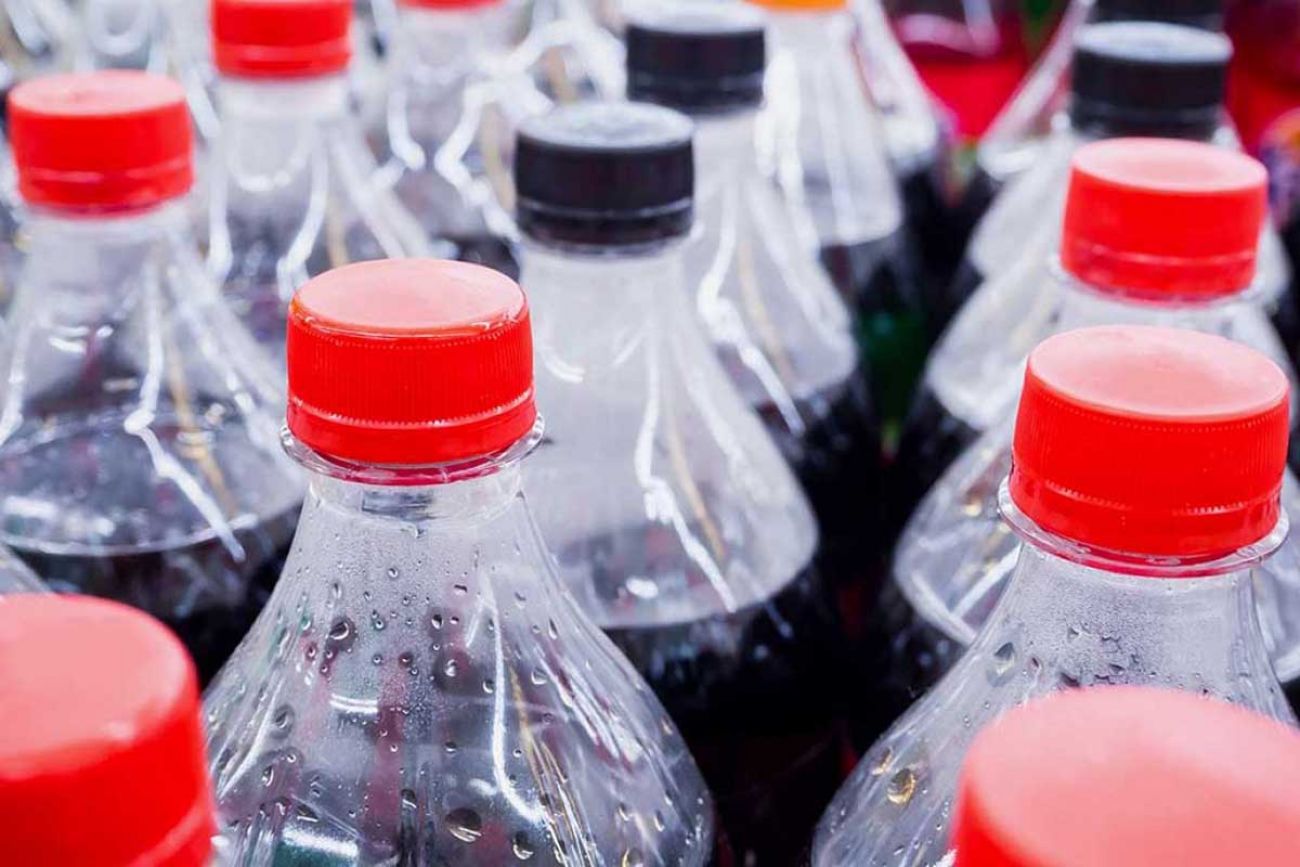Beverage companies want cut of Michigan bottle bill windfall during COVID

Michigan’s government may receive tens of millions of dollars in extra revenue from the COVID-19 backlog of unreturned bottles and cans. The beverage distributors who handle those containers say they should get some of that cash to reinvest in bottle recycling infrastructure.
For the second legislative session running, beverage industry groups are pushing bills that would compensate beer and pop distributors for their role in the state’s bottle and can recycling program.
Related stories:

Industry advocates say two House bills, sponsored by Rep. Jim Lilly, R-Park Township, and Rep. Kevin Hertel, D-St. Clair Shores, would allow them to make long-overdue upgrades in the trucks and machinery they use to collect billions of empties each year, crush them to bits, and cart them off to recycling plants.
Those investments, they say, would result in a smoother experience for Michiganders in grocery store bottle rooms, and bring an “element of fairness” for distributor companies that are often small local businesses.
But environmentalists worry that one of the bills would siphon state funds from their intended use: contaminated site cleanup in Michigan. They’re calling for a compromise that would compensate distributors while not taking away money from the Michigan Department of Environment, Great Lakes and Energy.
It’s the latest in a yearslong debate about whether and how to pay beverage distribution companies for their role in a recycling program that reclaims nearly 3.4 billion beverage containers each year.
Who should get your unclaimed dimes?
Each year, Michiganders buy hundreds of millions of carbonated beverages and never bring back the empties to the store to redeem the 10-cent deposits. That leaves tens of millions of dollars in loose change within Michigan’s recycling system. In 2019, the most recent year for which figures are available, the pot totaled $43 million.
In the early days of Michigan’s bottle recycling program, which voters created in 1976, beverage distributors — the companies that supply beverages to retail stores — pocketed the extra dimes. But legislators later changed that formula, in part to provide a new way for Michigan to clean up contaminated sites after then-Gov. John Engler repealed environmental cleanup regulations in 1995, making it harder for the state to hold contaminated site owners liable for pollution caused by former owners.
The Engler repeal, along with other funding problems, left the state struggling to clean up so-called “orphaned’ contaminated sites. Seeking to resolve the problem, lawmakers passed legislation in 1996 that redirected money from unredeemed deposits to cleanup efforts.
Today, those unredeemed funds, known as escheats, are split between the state and beverage retailers. Retailers take 25 percent to support their investment in the bottle program, such as the machines that count your empties at the grocery store. The other 75 percent goes to the state Cleanup and Redevelopment Trust Fund, where much of it supports EGLE’s efforts to clean up and redevelop contaminated sites.
Lilly, the bill sponsor from Park Township, north of Saugatuck, noted the formula leaves out beverage distributors who are responsible for collecting empties from retailers and readying them for recycling.
“At the end of the day,” he said during a committee hearing on the bills last week, “we have private enterprises that are incurring private costs to provide a public good.”
Michigan distributors collectively spend $60 million a year to support the recycling program, according to Spencer Nevins, president of the Michigan Beer & Wine Wholesalers Association, and the cost is rising.
With Michigan expected to bring in record revenue this year from unreturned bottles and cans in 2020, he said, “it’s a perfect time to recognize our costs.”
Although the state won’t tally its 2020 collections until later this year, Nevins said his anecdotal surveys of distributors lead him to believe that this year’s pot could rise well above $100 million — more than double the norm.
Negotiation likely
This isn’t the industry’s first attempt to convince lawmakers they deserve compensation for their contribution to recycling efforts.
Bills that died last session amid opposition from environmentalists and the Whitmer administration would have redistributed some recycling revenue into distributors’ coffers, diverting it away from the state’s contamination cleanup program.
This time around, beverage industry officials and their supporters are taking a different approach with better odds of success.
Rather than changing the bottle bill’s compensation formula, Lilly’s bill would amend the state Income Tax Act to give distributors a half-cent-per-bottle tax credit for every returnable container they sell.
The House Fiscal Agency estimates that would reduce state general fund revenue by $20 million per year. Because the bill doesn’t represent a change to Michigan’s voter-backed bottle bill, it also needs far fewer votes to pass than last year’s legislation.
A separate bill sponsored by Hertel would allow the state treasury department to divert money from the cleanup fund through 2022, if total revenue from escheats surpasses $50 million in any of those years. If that happens, the amount split between the state and retailers still couldn’t dip below $50 million — an amount, Hertel noted, that is still more than the state has ever taken in.
Because it would change the bottle bill, it would need support from three-quarters of legislators to pass.
Both bills passed out of committee this week, and Hertel said he expects the House to vote on them by the legislature’s “spring break” at the end of March.
The Michigan Environmental Council opposes the package because of Hertel’s bill, though policy director Sean Hammond said he’s generally open to the idea of compensating distributors.
But “harming the cleanup fund is just something that we cannot agree with,” he said.
Hertel noted that his bill would limit potential diversions from the cleanup fund only to the coming years, when revenue from unclaimed deposits is expected to be unusually high as a result of the pandemic.
“It’s a way for us to make sure we’re paying for (the tax credit) without a hit to the general fund,” he said. “And it’ll give us a couple of budget cycles to find other ways.”
Trying again at bottled water deposit
The bills are two among what will likely be a menu of bills this session tied to the state’s bottle return system, which has been a fertile ground for political debate, but not much action.
Sen. Sean McCann, D-Kalamazoo, and State Rep. Christine Morse, D-Portage, are sponsoring bills that would expand Michigan’s bottle bill to include water bottles and other non-carbonated beverages.
Those bills, too, would create a mechanism to pay distributors for collecting and processing bottles, and would dedicate a portion of escheats to investigating bottle return fraud that industry officials frequently cite as a major flaw in Michigan’s system.
But they face a steeper route to passage. Similar legislation has cropped up for several sessions running, and none has made it out of committee.
Nevins, of the Michigan Beer & Wine Wholesalers Association, called this year’s attempt to expand the kinds of beverages subject to the state’s recycling laws “a joke.”
“I don't think anyone's thought about the expansion at all of our stores would have to do to now take back all those containers,” he said.
But Morse said she’s undaunted by the odds.
“Plastics are polluting our lakes and our rivers,” she said, and Michigan’s recycling rate for containers not included in the bottle bill is abysmal. “This bill gives me hope that we could actually make a difference there.”
Michigan Environment Watch
Michigan Environment Watch examines how public policy, industry, and other factors interact with the state’s trove of natural resources.
- See full coverage
- Subscribe
- Share tips and questions with Bridge environment reporter Kelly House
Michigan Environment Watch is made possible by generous financial support from:
Our generous Environment Watch underwriters encourage Bridge Michigan readers to also support civic journalism by becoming Bridge members. Please consider joining today.
See what new members are saying about why they donated to Bridge Michigan:
- “In order for this information to be accurate and unbiased it must be underwritten by its readers, not by special interests.” - Larry S.
- “Not many other media sources report on the topics Bridge does.” - Susan B.
- “Your journalism is outstanding and rare these days.” - Mark S.
If you want to ensure the future of nonpartisan, nonprofit Michigan journalism, please become a member today. You, too, will be asked why you donated and maybe we'll feature your quote next time!






